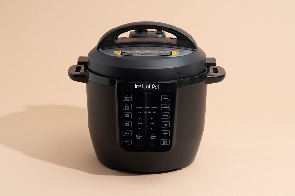A new study by researchers at the Institute of Statistical Social and Economic Research (ISSER) has found that cooking with electricity is cheaper than Liquefied Petroleum Gas (LPG) and charcoal.
The study found that using Electric Pressure Cookers (EPC) was cheaper in terms of cost of energy used compared to the use of LPG stove and charcoal-improved cooking stoves for cooking in households.
The study was commissioned as part of the second phase of the Modern Energy Cooking Services Project (2022-2023), which seeks to facilitate households’ transition to modern cooking fuels, away from traditional solid fuels.
The project, supported by the World Bank, sought to demonstrate the efficiency, financial, health, and environmental benefits associated with modern energy cooking services, especially e-cooking.
Approach and results
Using four separate cooks, who were tasked to prepare four separate meals in their homes, the researchers deployed four different cooking technologies – EPC, rice cooker, charcoal-improved cooking stove, and single burner LPG stove.
The meals – Jollof Rice and fried chicken, banku and okro soup, ampesi with palava sauce, and beans and fried plantain – were cooked four times and the researchers generated data from the activity, using specialised measuring instruments.
Data generated from the various sessions indicated that the cooks, in the case of the Jollof meal for instance, spent 52.3 minutes on LPG; Charcoal, 51 minutes; EPC, 87.3 minutes; and rice cooker, 72.3 minutes.
The cost of energy for cooking the jollof (all in Cedis): LPG, 1.03, Charcoal, 0.79, EPC, 0.34 and rice cooker, 0.41.
With all the other meals, the EPC recorded lower figures in terms of the cost of energy used in cooking the meals.
Mr Innocent Agbelie, a Co-researcher, said the outcome of the research disproved the notion that cooking with electricity was expensive than other sources of energy.
He said the main challenge encountered with the use of the e-cooking technology was power outages, and unreliable power supply.
“In one of the sessions, the lights went out and we had to wait for hours before we could continue,” he said.
He said the cost of the EPC, which was sold at an average GHS800 during the research period, discouraged people from using the technology.
The researchers recommended among others continuous promotion of e-cook technologies and the localisation of e-Cook technologies to meet household demands.
“We should engage local and international manufacturers to improve on the existing e-Cook technology designs.” Mr Agbelie said.
Professor Nana Charlotte Wrigley-Asante, Head of Geography Department, UG, said the use of traditional energy sources such as charcoal and wood polluted the environment and had health implications, including respiratory disorders on women and children.
“There is the need for us to adopt modern cooking technologies to improve the health and wellbeing of women and children, especially in rural communities,” she said.
Mr Alex Donyinah, Energy Consultant at the World Bank, said the Bank would announce a major investment for the clean cooking sector next year.
He said the World Bank was also supporting the Ministry of Energy to develop a clean cooking strategy for Ghana.
Business News of Tuesday, 19 December 2023
Source: GNA













